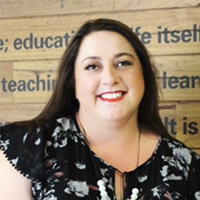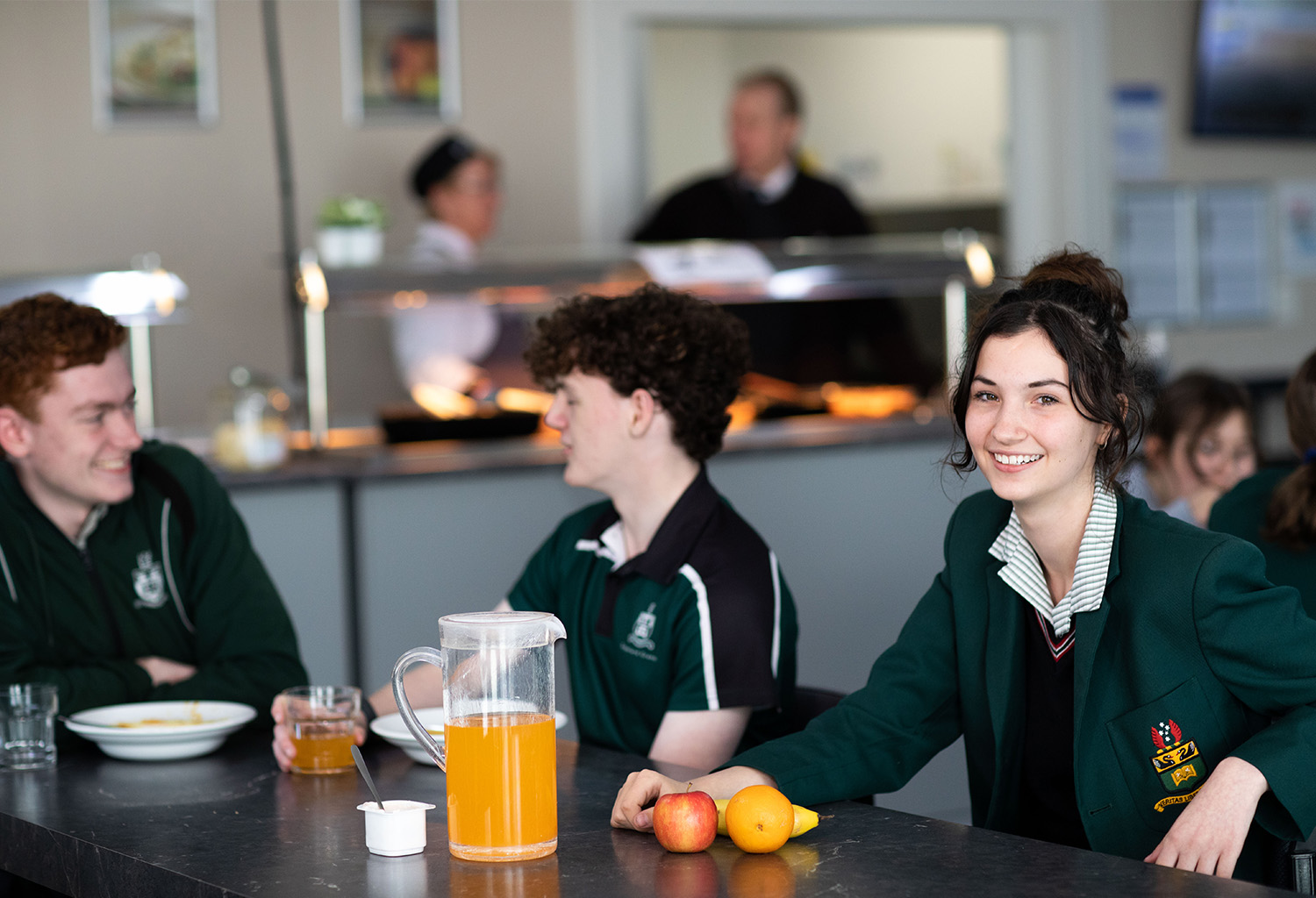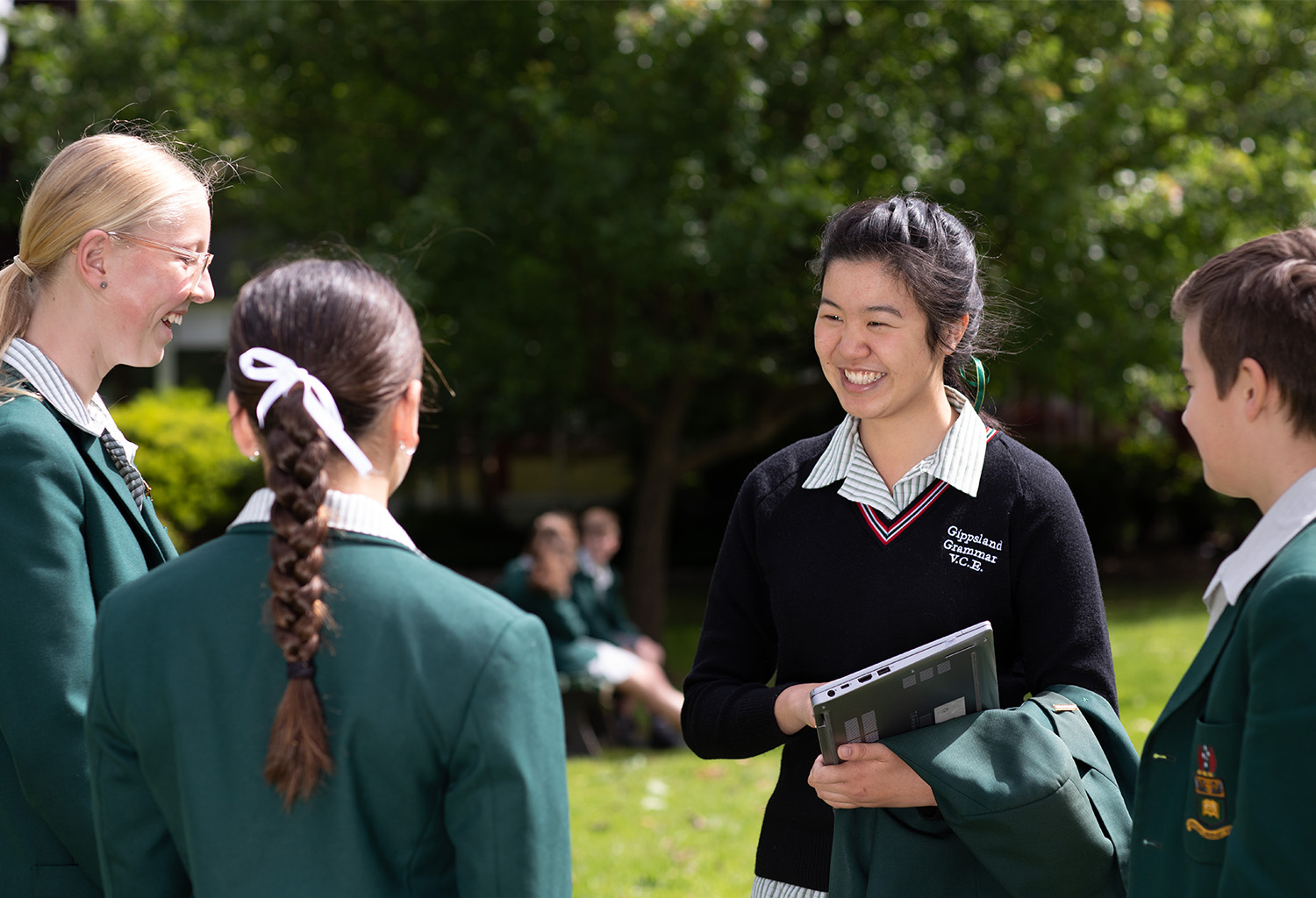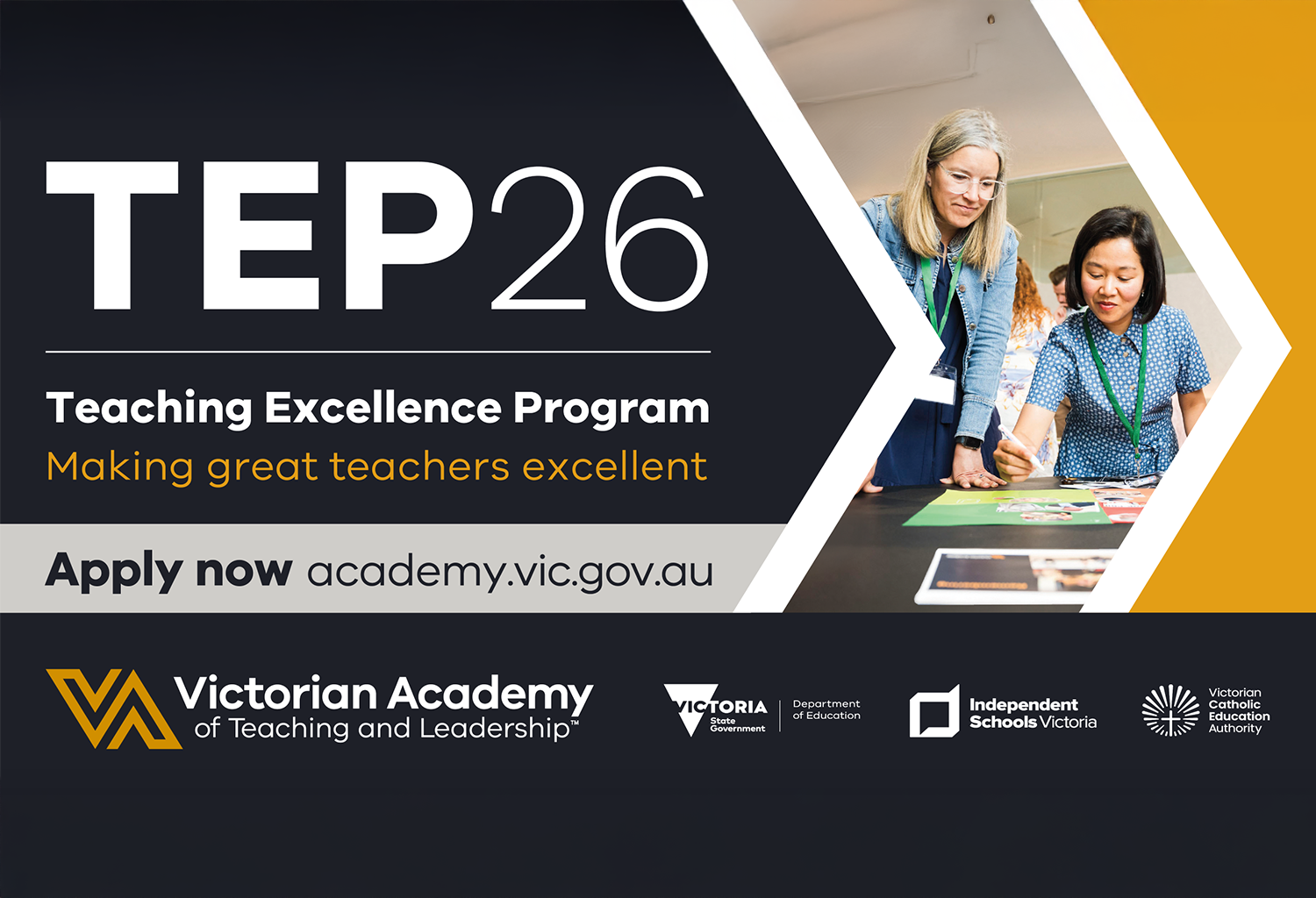Fostering innovation and reflective learning
Insights from Dr. Flossie Chua's visit to Independent Schools Victoria
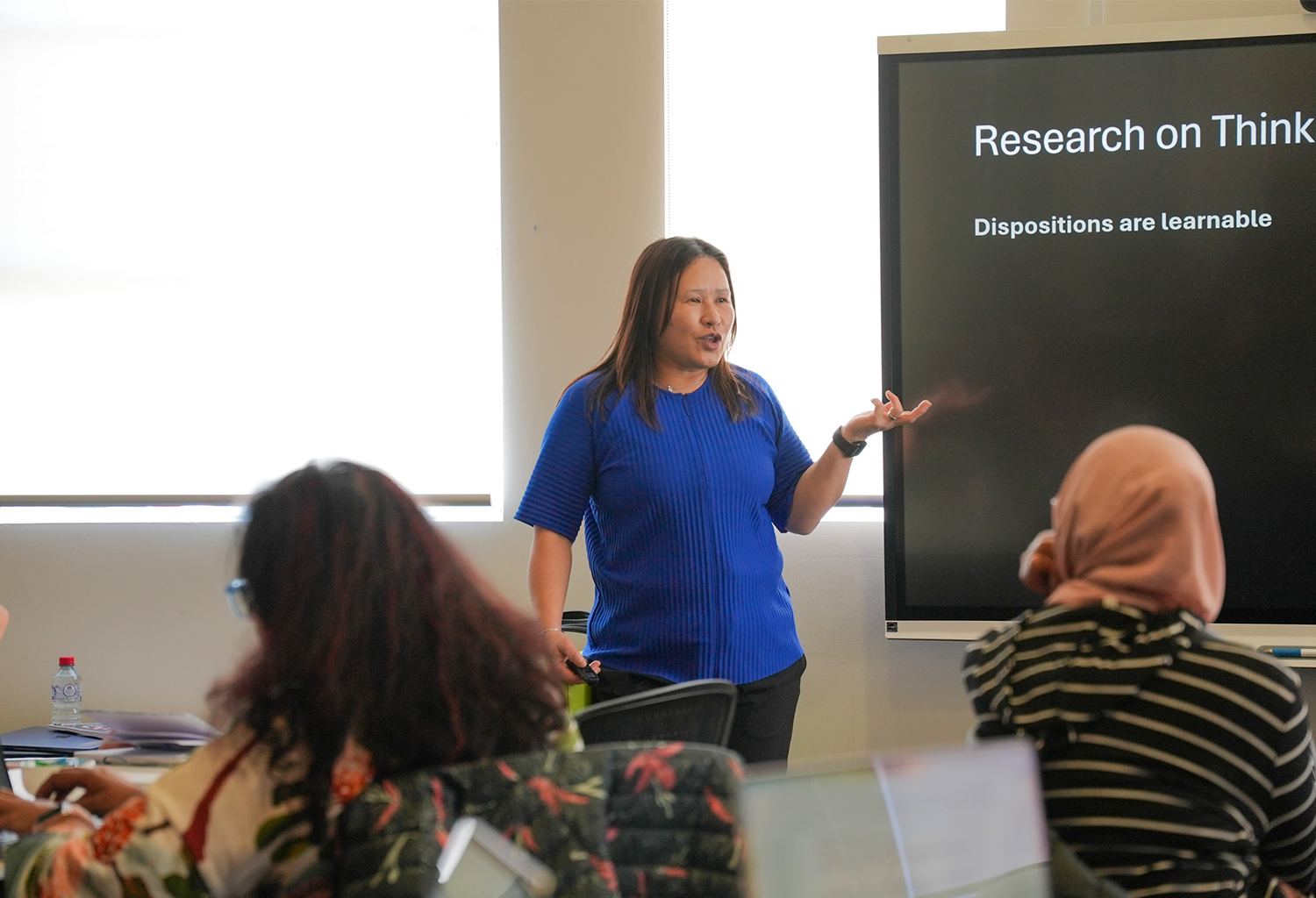
4 min read
Reflecting on my time with Dr. Flossie Chua, I am struck by the profound impact her visit had on our educational community at Independent Schools Victoria (ISV). Dr. Chua’s work with Harvard Project Zero has been transformative, providing us with practical strategies and deeper insights into fostering innovative and reflective learning environments even further.
Over the years, Project Zero at the Harvard Graduate School of Education has developed numerous influential concepts, such as ‘visible thinking’ and ‘cultures of thinking’, which have profoundly impacted educational methodologies globally.
Dr. Flossie Chua is a Principal Investigator at Project Zero. Her research emphasises the importance of collaboration, creativity, and critical thinking in fostering meaningful educational experiences. Her recent visit to ISV provided an invaluable opportunity for educators to gain insights into these critical areas. To synthesise the enormity of the teaching and learning during Flossie’s visit, I have gathered seven key lessons that emerged within my own thinking to share with schools.
1. Ignite Deep Level Collaboration and Thinking with Routines
Implementing thinking routines such as “I Used to think, but now I think”, “See-Think-Wonder” and “Think-Pair-Share”, “Connect -Extend-Challenge” encourages students to articulate and share their thoughts, leading to deeper engagement with content and the development of critical thinking skills. Schools can incorporate these routines into daily lessons to help students structure their thinking and engage more deeply with the material. Regular use of these routines fosters a culture of reflective learning.
Working with Flossie, teachers who attended her thinking routines workshop at ISV developed and designed their thinking routines that infused energy and enthusiasm into the room. This collaborative effort enabled us to return these innovative strategies to classrooms, enhancing student engagement.
“Thinking routines are essential tools that help students make their thinking visible and deepen their understanding. They are the scaffolds that support students in structuring and articulating their thoughts.”
— Flossie Chua
2. Lead with an Open Mind
School leaders who model open-mindedness, curiosity, and reflective thinking can create a culture that values these traits. Leaders should engage in professional development that emphasises these mindsets and demonstrate them in their daily interactions with staff and students. Schools can also establish mentorship programs where experienced leaders guide others in cultivating these attributes.
At ISV, leaders participated in workshops with Dr. Chua on developing a leadership mindset. This initiative helped create an environment where teachers felt supported and encouraged to explore innovative teaching methods. Leadership research from Project Zero emphasises the importance of leaders in establishing a culture of thinking, which significantly influences the entire school community.
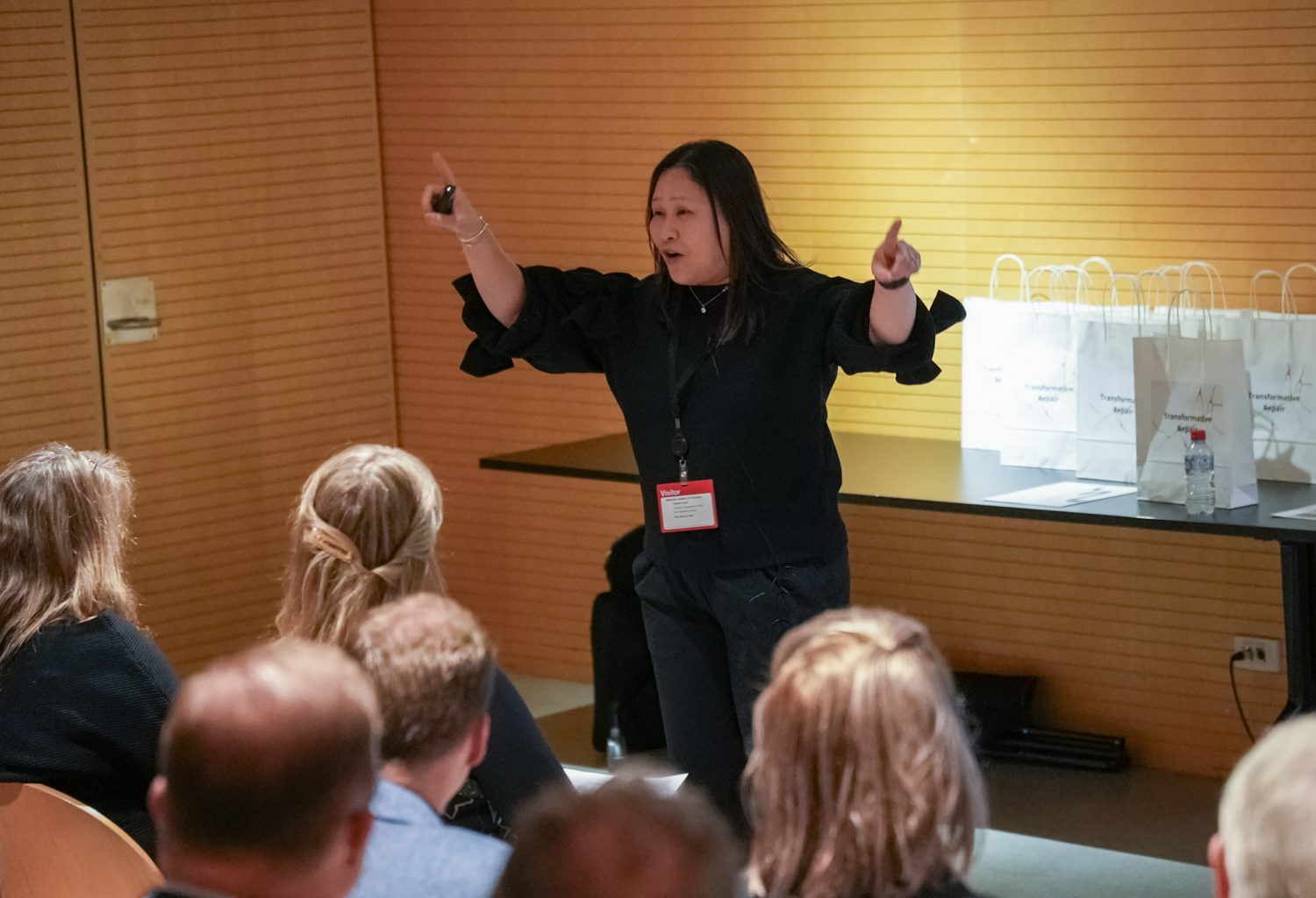
3. Heal and Grow Through Art
Utilising artistic practices to address environmental and personal challenges fosters resilience and optimism among students. Schools can integrate art projects focusing on environmental themes and personal storytelling into the curriculum. Encouraging students to use art to express and solve problems can have profound impacts.
The Transformative Repair program at ISV involved students in projects that used recycled materials to create art, fostering discussions on environmental responsibility and personal growth. Studies from Project Zero’s Transformative Repair program demonstrate how art can promote emotional healing and resilience, providing students with creative tools to address complex issues.
“Artistic practices are powerful vehicles for personal and environmental healing, offering students a means to explore and express their emotions while engaging with broader societal issues.”
— Project Zero, 2023
4. Embrace Change with Innovation
Flossie shared Revisioning and Edge Effect to help schools navigate change and implement innovative practices. Schools can adopt the Ideas into Action toolkit to guide school-wide initiatives and encourage teachers to experiment with new teaching strategies. She shared how the toolkit can facilitate workshops and discussions on innovative practices and how a toolkit such as this one can develop projects to address local community needs, fostering a sense of purpose and innovation. Research on the Ideas into Action toolkit shows its effectiveness in supporting schools through change and fostering a culture of continuous improvement and innovation.
“Innovation is not just about adopting new tools or practices, but about fostering a mindset that embraces change and seeks continuous improvement.”
— Flossie Chua
5. Learn Together, Grow Together
Encouraging students to engage in collaborative activities enhances learning by building on collective knowledge. Designing classroom activities that require teamwork and peer-to-peer interaction. Implementing group projects enabling students to share ideas and build on each other’s contributions can enhance learning outcomes. Project Zero’s studies underline that learning is inherently social and collaboration leads to deeper understanding and sustained engagement. Collaboration is critical to fostering a culture of deep-level learning.
“Collaboration among students not only enhances learning outcomes but also builds essential social skills and a sense of community.” (Independent Schools Victoria, 2024, p. 22).
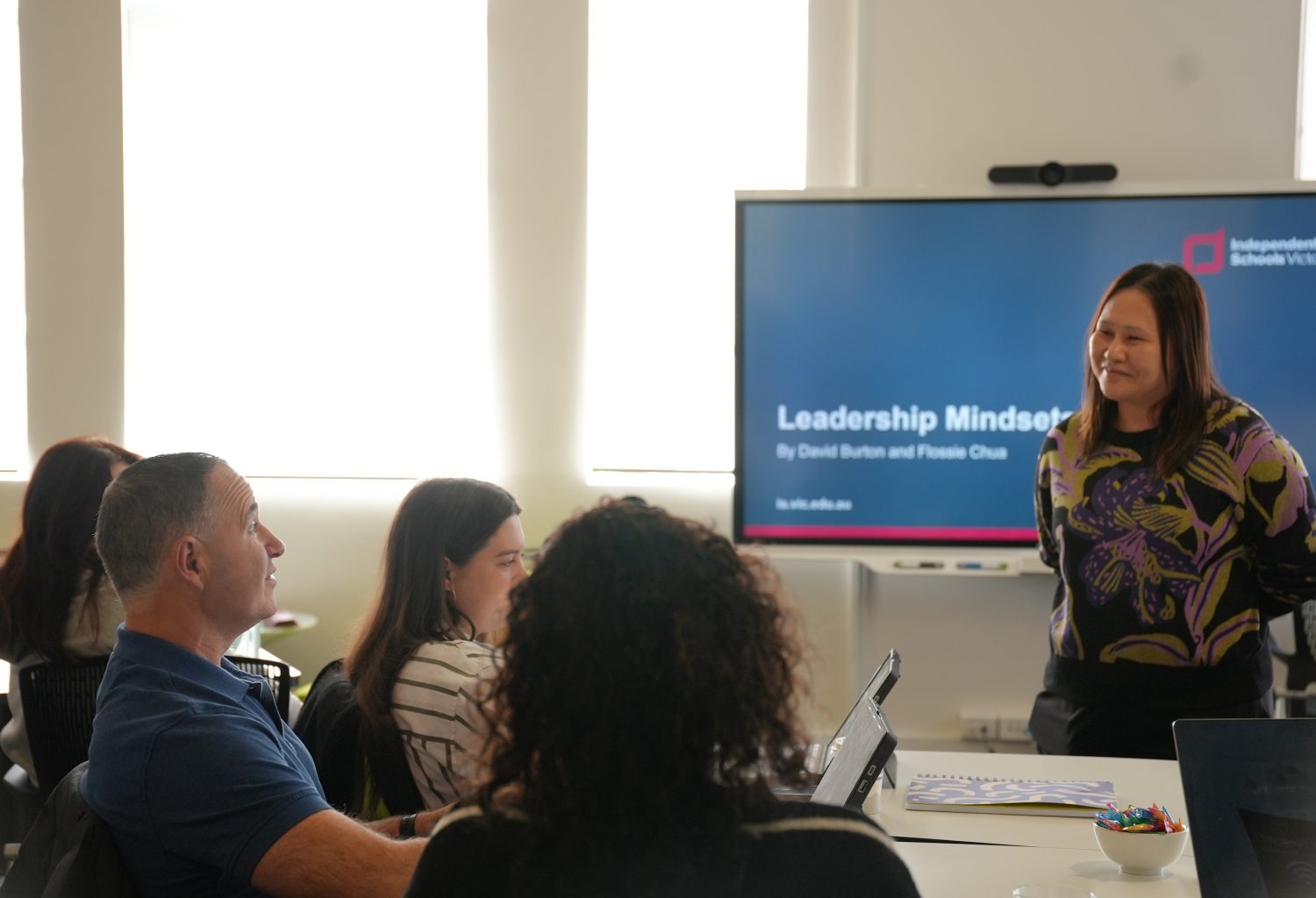
6. Make Thinking Visible
This is one of the ongoing and key messages from Flossie and the entire team. Making thinking processes visible through speaking, writing, and drawing helps students direct and improve their thoughts. Schools can encourage students to document their thinking through journals, diagrams, and presentations. Using visible thinking strategies in assessments can provide insights into students’ thought processes. The emphasis on visible thinking in Project Zero’s research indicates that externalizing thinking processes not only enhances individual learning but also provides valuable insights for teachers to tailor their instruction effectively.
7. Cultivate a ‘Thinking Community’ at your school underpinned by research and evidence-based decision-making
One of the fundamental principles emphasised during Flossie’s visit was the importance of evidence-based decision-making in schools. By adopting strategies and practices grounded in empirical research, schools can ensure that their initiatives are effective and sustainable. This approach enhances the quality of education and builds trust and clarity within the school community.
Flossie regularly shared the importance of schools establishing professional learning communities where teachers can discuss and reflect on teaching practices to enhance their instructional methods, also building a sense of belonging and a language of learning to connect with others.
Schools can create opportunities for teachers to collaborate and share best practices regularly using the techniques and evidence shared through Project Zero.
Where to next?
Flossie’s visit to ISV has been transformative. The continued wisdom and lessons learned from Flossie underscore the significance of fostering a culture of thinking and collaboration supported by evidence-based practices. These principles will continue to guide our efforts to create a learning environment where students and educators can thrive.
I eagerly look forward to Flossie’s return to ISV later in the year, anticipating even more enriching experiences and opportunities for growth.
References
Chua, F. (2024). [Quote on thinking routines and innovation]. Independent Schools Victoria Workshop.
Independent Schools Victoria. (2024). **Improving Outcomes for All: Leading Reform Through Innovation**. Melbourne: Independent Schools Victoria
